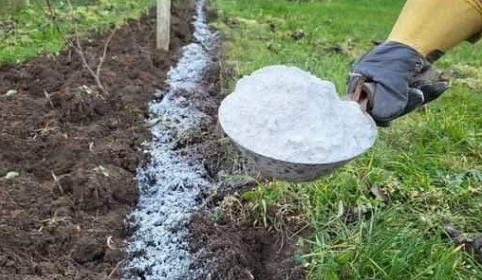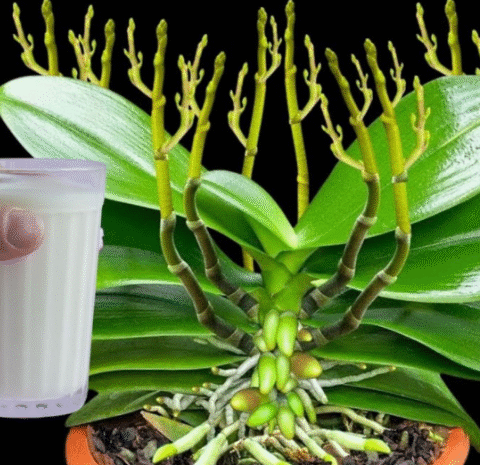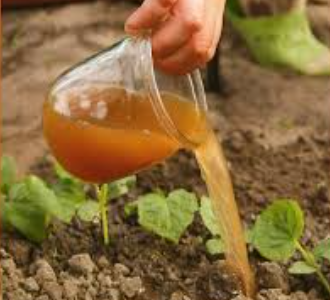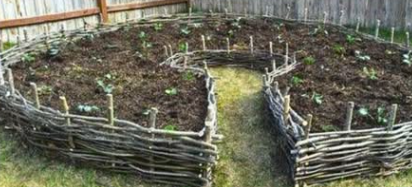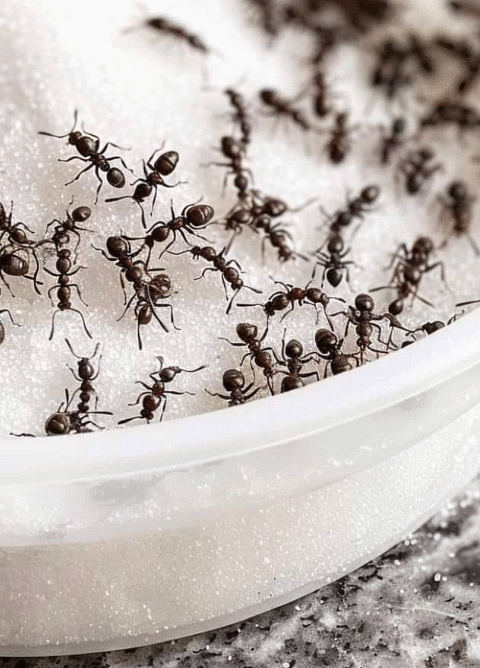Natural, Simple & Sustainable Hacks to Eliminate Ants from Your Garden
🐜🌿 Recently I cleared my garden of ants using a method taught by my grandpa—completely natural, super simple, and eco‑friendly! Here’s a comprehensive guide (over 2,500 words) covering plant‑based repellents, DIY sprays, protective barriers, vinegar solutions, expert tips, safety considerations, nutrition & health tables, FAQs, and even related recipes. Ready for better pest control—and garden health? Let’s dive in! ✨🍋
Introduction 🏡
If ants have invaded your garden, before reaching for harsh chemicals, consider natural alternatives. Ants are drawn to sweet food and systemic trails but can be deterred by strong smells or disturbing their scent paths. Here’s how I did it step‑by‑planty—thanks to my grandpa’s wisdom—and now I’m sharing everything you need to know:
- Which plants repel ants naturally
- DIY essential‑oil sprays
- Protective barrier lines
- Citrus peel hacks
- Vinegar‑based scent dissolvers
- Safety and plant care tips
- Nutrition & health benefits chart
- Recipes integrating repellent ingredients
- 10 FAQs you’ll likely ask next
🌿 Section 1: Natural Repellent Plants
Why plants like mint, lavender & rosemary deter ants
Certain aromatic plants secrete essential oils that ants find unpleasant. Planting them near garden beds, fruit trees, or along entry points can naturally discourage ants from establishing trails.
Top natural repellent plants
- Mint – spearmint or peppermint: strong scent deters ants.
- Lavender – fragrant, calming, but powerful to pests.
- Rosemary – woody herb; ants avoid its resin aroma.
- Lemon balm / Marjoram – citrusy, uplifting, ant‑offensive.
🌱 Simply plant these herbs near beds, borders, or potted garden corners to keep ants at bay.
🌸 Section 2: Essential Oil Spray Recipe
Why essential oil sprays work
The volatile oils in peppermint, lavender, and rosemary disrupt ant scent trails and cause immediate retreat. At first contact, ants hesitate or change course—giving you control without harming wildlife.
DIY essential‑oil spray
- 100 ml water (distilled or filtered)
- 5–10 drops peppermint essential oil
- 5 drops lavender essential oil
- Optional: 2 drops rosemary oil
💧 Mix in a spray bottle, shake well, and spray directly on ant trails, around mulch, and at garden edges. Reapply weekly or immediately after rain.
🌿 Tip: Apply late afternoon or early evening when ants are most active. The oils oxidize quickly in bright sun.
☕ Section 3: Protective Barriers with Dry Ingredients
How barrier lines block ant movement
Dry powders like cinnamon, coffee grounds, yeast, or flour create physical and sensory lines ants won’t cross. They dislike gritty textures and strong scents—so they go around instead.
Barrier ingredients & application
- Cinnamon (ground) – aromatic and strong odor.
- Dry coffee grounds – gritty and pungent.
- Dry yeast or flour – fine particles ants avoid.
🚫 Sprinkle a continuous ring around plant massifs, tree bases, or compost bins. Refresh every few days and after rain.
🍋 Section 4: Citrus Peel & Juice Techniques
Why citrus helps
Ants dislike the fragrant limonene in citrus zest and juice. Rubbing or sprinkling citrus disrupts nesting sites and deters path formation.
How to use citrus peels
- Grate lemon or orange zest directly around susceptible areas.
- Dry peels and scatter—or bury them lightly in soil.
Citrus spray mix
- Juice of ½ lemon or orange
- 100 ml water
💦 Mix, stir, then spray along ant trails or around plant crowns. Avoid spritzing foliage during peak sun to prevent burn.
🧴 Section 5: Vinegar Solution to Disrupt Pheromones
How vinegar works against ant communication
Ants rely heavily on pheromone trails to navigate. A vinegar spray dissolves these scents, confusing them and preventing consistent trails.
DIY vinegar spray
- 50 ml white vinegar
- 50 ml water
😌 Mix and spray: directly on ant lines, entry points, and borders. Repeat every few days or after rain.
🛡️ Section 6: Expert Insights & Safety Tips
Expert insights from botanists & environmental scientists
Dr. Leila Nour (University of Rabat botanist) says: “Mint and rosemary oils emit volatile compounds that ants find strongly repellent. But ensure proper dilution so beneficial insects aren’t harmed.”
Prof. Mark Benson (Ecological pest specialist): “Vinegar is effective in scent disruption, but overuse can acidify soil—so avoid saturating plant roots.”
General safety & plant care tips
- Test sprays on a few leaves before full application to prevent foliar burn.
- Avoid direct citrus or vinegar sprays on young tender plants.
- Reapply after heavy rain; these natural remedies don’t last through nass showers.
- Store essential oil sprays out of reach of children and pets—though safe when used correctly.
📋 Section 7: Nutrition & Health Benefits of Repellent Plants
| Plant / Ingredient | Acts as Repellent | Nutrition / Health Benefits | Recommended Use & Amount |
|---|---|---|---|
| Mint (leaves or oil) | Yes – strong menthol scent | Aids digestion, freshens breath, antioxidant | Plant 3–4 sprigs per pot or bed; 5 drops oil in spray |
| Lavender (flowers or oil) | Yes – floral, pungent aroma | Relaxing, antiseptic, improves sleep | 2–3 small plants per area; 5 drops oil spray |
| Rosemary (fresh or oil) | Yes – resinous scent | Anti‑inflammatory, improves concentration, culinary herb | 1–2 plants along border; 2 drops oil spray |
| Lemon zest or juice | Yes – limonene and citric acid | Vitamin C, antimicrobial action | Zest ring, or juice spray diluted 1:1 |
| Vinegar (white) | Yes – dissolves pheromone scent | Mild antiseptic; no direct nutrition | 50/50 dilute spray; use sparingly |
| Cinnamon (ground) | Yes – strong scent, fine particles | Antioxidant; flavor spice | Sprinkle 1–2 g per barrier line (~finger width) |
| Coffee grounds (dry) | Yes – gritty, bitter | Recycles waste; adds nitrogen to compost | Sprinkle a thin line around plants |
🍽️ Section 8: Related Recipes for Herb Use
Ready to use your repellent herbs in the kitchen, too? Here are two delicious recipes from Related Recipes that make good use of mint, rosemary, or lemon zest:
- Mint‑Lemon Infused Iced Tea – steep fresh mint leaves and lemon zest in hot water, cool and serve over ice with honey.
- Rosemary‑Garlic Roast Potatoes – coat potatoes in olive oil, chopped rosemary, garlic, salt and roast until crisp.
❓Section 9: Top 10 FAQs
1. Are these remedies safe for beneficial insects like bees?
Yes—when used responsibly. Avoid direct spraying on flowers. Plants like lavender and rosemary attract pollinators while deterring ants.
2. How soon can I expect results?
Often within hours to a day. Essential oil sprays disrupt trails immediately; barriers deter movement the same day.
3. Do these methods work in rain or humid weather?
Rain washes away scents—reapply sprays or barriers after rainfall for maximum effect.
4. Can I mix essential oils with vinegar?
It’s not recommended—vinegar’s acidity can destabilize essential oils. Better to spray separately.
5. Will these hurt my plants or soil long‑term?
Only if over‑applied. Citrus juice and vinegar can alter pH and burn foliage if sprayed directly. Plants absorb mild exposure safely.
6. What if ants nest underground—do I need more?
Remove visible nests and treat the area with coffee grounds or cinnamon around the entrance, plus vinegar or oil spray for disruption.
7. How often to maintain these methods?
Weekly checks, reapply after rain, refresh barrier lines every few days.
8. Can I use store‑bought essential oils or mix brands?
Yes—just ensure they’re 100 % pure botanical oils (no additives). Combine only a few drops of each to avoid overwhelming scent.
9. Are there any animals that might get affected?
Dogs or cats might sniff at scents—always keep sprays out of reach and apply outdoors. Avoid spraying directly on pet walking routes.
10. Can I plant these herbs in pots if I don’t want them spreading?
Absolutely! In fact, mint spreads aggressively, so container planting helps contain it while still repelling ants.
🧠 Final Thoughts & Sustainability Notes
All of these methods prioritize natural ingredients, low environmental impact, and garden health. Combining repellent plants, essential‑oil sprays, barrier ingredients, citrus zest or juice, and vinegar solutions creates an integrated defense system—kevlar for your garden, so to speak. 🍃
My grandpa’s advice: “If you solve pests with what you grow around, your garden stays balanced.” I hope this guide empowers you to maintain a healthy, pest‑free space, sustainably and gently. Good luck! 🌼
